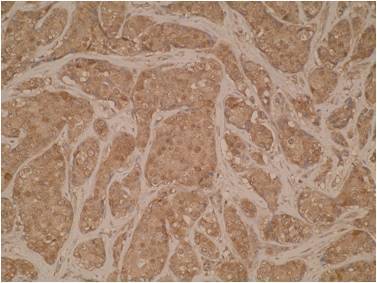Cat. #152686
Anti-UCP1 [Vab12 P4B12*A12]
Cat. #: 152686
Sub-type: Primary antibody
Unit size: 100 ug
Availability: 3-4 weeks
Target: Uncoupling Protein 1 (Mitochondrial, Proton Carrier) (UCP1)
Class: Monoclonal
Application: ELISA ; IHC ; WB
Reactivity: Human
Host: Mouse
£300.00
This fee is applicable only for non-profit organisations. If you are a for-profit organisation or a researcher working on commercially-sponsored academic research, you will need to contact our licensing team for a commercial use license.
Contributor
Inventor: Ayham Alnabulsi
Institute: Vertebrate Antibodies Limited
Tool Details
*FOR RESEARCH USE ONLY (for other uses, please contact the licensing team)
- Name: Anti-UCP1 [Vab12 P4B12*A12]
- Research fields: Cancer;Cell signaling and signal transduction;Metabolism
- Clone: Vab12 P4B12*A12
- Tool sub type: Primary antibody
- Class: Monoclonal
- Conjugation: Unconjugated
- Reactivity: Human
- Host: Mouse
- Application: ELISA ; IHC ; WB
- Description: UCP are mitochondrial transporter proteins that create proton leaks across the inner mitochondrial membrane, thus uncoupling oxidative phosphorylation from ATP synthesis. As a result, energy is dissipated in the form of heat.
- Immunogen: Ovalbumin-conjugated synthetic peptide - (10 amino acids) derived from the middle polypeptide region of human UCP1. The exact sequence is proprietary.
- Isotype: IgG1 kappa
- Myeloma used: P3X63Ag8.653
- Recommended controls: WB- Jurkat whole cell lysate or overexpression cell lysate; IHC-formalin-fixed, paraffin-embedded human breast cancer
Target Details
- Target: Uncoupling Protein 1 (Mitochondrial, Proton Carrier) (UCP1)
- Tissue cell line specificity: WB- Jurkat whole cell lysate or overexpression cell lysate; IHC-formalin-fixed, paraffin-embedded human breast cancer
- Target background: UCP are mitochondrial transporter proteins that create proton leaks across the inner mitochondrial membrane, thus uncoupling oxidative phosphorylation from ATP synthesis. As a result, energy is dissipated in the form of heat.
Applications
- Application: ELISA ; IHC ; WB
Handling
- Format: Liquid
- Concentration: 1 mg/ml
- Unit size: 100 ug
- Storage buffer: PBS with 0.02% azide
- Storage conditions: -15° C to -25° C
- Shipping conditions: Dry ice
References
- The expression of brown fat-associated proteins in colorectal cancer and the relationship of uncoupling protein 1 with prognosis.
- The expression of brown fat associated proteins in colorectal cancer and the relationship of uncoupling protein 1 with prognosis. Alnabulsi et al. 2019. Int J Cancer.





